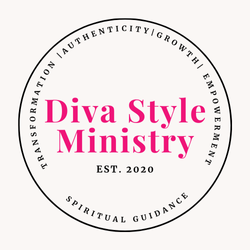 When you experience something difficult or traumatic in your lives, you might retain remnants of the event – and the accompanying emotions – can stay lodged in your mind and body. These experiences create conditioned responses that can affect the way we make decisions moving forward and can impact aspects of our lives we are not consciously aware of. Digging into these retained emotions and experiences can be one of the keys to living more authentically.
When you experience something difficult or traumatic in your lives, you might retain remnants of the event – and the accompanying emotions – can stay lodged in your mind and body. These experiences create conditioned responses that can affect the way we make decisions moving forward and can impact aspects of our lives we are not consciously aware of. Digging into these retained emotions and experiences can be one of the keys to living more authentically.
When you experience stress or other events that seem to be out of your control, you can experience a level of fear over what’s coming. Instead of worrying about the future or stressing about the past, it can be helpful to look at ourselves from the inside out and examine our beliefs about ourselves. Are they authentic beliefs? Do they have to be true?
When you experience hardship, you might take it personally and begin to think there is something inherently wrong with you, or that you were the cause of something negative. I’ve been there before – and let me be the first (or the next) person to tell you emphatically You do NOT cause all the hardships in your life. Even if it’s true that you had something to do with the hardship, it’s counterproductive to take on all the responsibility for negative things that happen in life. The essence of life is that change is constant and unavoidable. The other truth is that birth and death are both processes of life, and – surprise – we’re not in control of those either.
 Sometimes we engage with life in a way that is positive and meaningful and leads to outcomes and experiences that we want. Other times, life throws unexpected events at us, and we need to determine whether we are going to take a less productive road and blame ourselves for them personally, sink into victimhood, become defeated, and give up or blame others. Hint – that is NOT recommended!
Sometimes we engage with life in a way that is positive and meaningful and leads to outcomes and experiences that we want. Other times, life throws unexpected events at us, and we need to determine whether we are going to take a less productive road and blame ourselves for them personally, sink into victimhood, become defeated, and give up or blame others. Hint – that is NOT recommended!
You can step into your inherent worth and dignity, tap into your strengths, and choose to rise above the situation. You can take a step back and look to see where you can discern wisdom from the experience. You can and should be confident in yourself and what you have to offer. you can also remind yourself that you are special and have a unique perspective and unique experiences that can show you how to be your best.
One practice for experiencing forgiveness and understanding yourself more deeply is by engaging in the process of meditation. Meditation is a practice of contemplation that empowers you to calm your mind and pay attention to your thoughts and emotions. If this is the first time you’re reading about Meditation from me, you can find additional articles and resources here.
When you can clearly see the mental experiences that you are having in your mind, you can begin to understand yourself more fully. When you take time to understand yourself, you can offer yourself greater compassion and honesty. This can allow you to forgive yourself for any mistakes you’ve made and begin to start with a fresh perspective that allows you to be gentler with yourself. After the year we’ve had in dealing with the COVID pandemic and its wide-reaching effects on our society, we could ALL use a little more gentleness.
How to Practice Guided Meditation
Guided meditation is the practice of listening to recorded audio or visual while relaxing, envisioning, and imagining. Guided meditations can also be experienced live with a professional teacher or therapist, but many people find that the recorded meditations are a great way to get started.
Guided meditations can also be experienced live with a professional teacher or therapist, but many people find that the recorded meditations are a great way to get started.
During the guided meditation session, the teacher will lead a series of ideas, thoughts, or mantras that the participant can envision, imagine, and experience. Often the topics of stress relief, self-confidence, and healing are commonly included in guided meditation. Specific meditations can be found for healing from within while reducing stress and alleviating traumatic response, acknowledging, and releasing grief, guilt, and other negative reactions and ideas we hold onto.
When you listen to a guided meditation, you reprogram the subconscious mind to align with the conscious mind so that you can make changes to your outlook and to your experiences. The best part about guided meditation is that you can relax and let a guide lead you into a space of mindfulness.
You can create new images and ideas in your mind that offers a positive outlook and can begin to help you implement changes in your life. New experiences await you as you continue to practice consistently and adopt a mindful and positive path.
When you practice guided meditation regularly, the phrases and offerings will begin to create a new reality that will in turn allow you to react differently to your pain, suffering, and challenges. Even ideas you have held onto for a long time can be changed or lessened through focused meditation and mindfulness.





